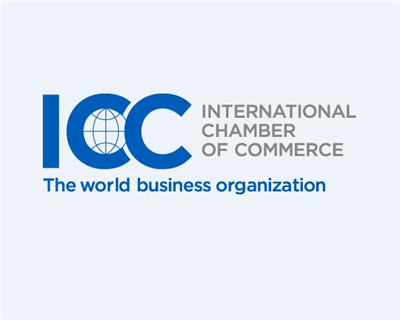The ICC & export finance: An update on key developments
A year after the first meeting of the ICC Export Finance Committee in Barcelona it is a good time to look back at what we had in mind starting this initiative and where we stand now.

A year after the first meeting of the ICC Export Finance Committee in Barcelona it is a good time to look back at what we had in mind starting this initiative and where we stand now.
Over the last months we received quite a few inquiries related to this committee, varying from questions related to what the committee is about, to whether it would be possible to join. We were also pleased to receive invitations to present ourselves at various conferences.
Looking back at the start when receiving the approval of the ICC banking Commission, the purpose of launching this committee was threefold:
- To create a credible standing global discussion forum of banking experts in medium and long-term (MLT export financing;
- To create a representative body to discuss industry matters with various stakeholders;
- To advocate for and help develop improvements and efficiencies through the standardisation and harmonisation of processes and regulations.
Following the earlier successful initiative of the ICC to include medium and long-term export covered financing in the ICC Trade Register Report, we were pleased with the ICC Banking Commission welcoming this initiative to further help this global industry to provide for a platform under its global umbrella. The warm welcome was best illustrated by the words of Daniel Schmand, the chair of the ICC Banking Commission:
“The export industry is by nature a global industry and the committee is therefore also truly global – connecting with, and gleaning information from, key institutions around the world that serve the export finance business. The hope is that the forum will become a global representative body in discussions with all kind of stakeholders – representing an industry that may be small, but is certainly crucial."
Since the export finance industry is indeed global, the first goal was to form a committee with industry experts from all continents with not only the biggest banks being represented. Based on the initial inquiry, feedback was positive from many people to join and volunteer to try and bring this industry to a next, higher level. Jointly with the ICC, 14 members were selected to get this going. This also meant we had to disappoint a number of people later on given the already large size of the committee. The terms of reference however provide for the possibility for other experts of other banks to join when existing members step down after a three year period. It is certainly not envisaged that when a member leaves, another person of that bank will take over. The ICC will also ensure that the committee remains truly global and that its members are also truly active.
The second goal was to quickly liaise with our most important partners in the industry, the export credit agencies (ECAs). This purpose was best served by connecting with the Berne Union, the representative body of Export Credit Agencies and Private Insurers. Its Secretary General Kai Preugschat wholeheartedly supported the idea from the start and the Berne Union formed a working group from its medium and long-term Business membership to get the ball rolling.
The third goal was to start with an agenda of items that the industry is facing and where some immediate action would be required.
Our kick-off meeting in Barcelona last year served that purpose and a few main topics were listed.
So, were do we stand one year after the inception?
Like the export finance business, nothing really moves very quickly. Sometimes unfortunately. There are however a number of encouraging achievements and developments, which we would like to reflect on.
First, we did have our first physical meeting with the sub-committees of the Export Finance Committee and the Berne Union. A number of industry topics have been discussed and an action list was formed. This is a historical step, which was received with enthusiasm from both sides. Some further follow up already helped in solving certain issues between parties form both sides.
The second meeting will be held in Lisbon end of October, illustrating this initiative is useful and here to stay.
Secondly, we focused on a number of topics related to the consequences of changes in regulations following Basel 3 and 4.
Two main topics were formulated in order to ensure further follow up:
- The impact of the leverage ratio, potentially threatening the export finance industry due to higher capital charges, requiring much higher pricing;
- Art 194 of the CRR (Capital Requirements Regulation), embedding in European law the need for legal opinions on risk mitigating instruments to ensure reduction of RWA (Risk Weighted Assets).
The first topic requires ongoing discussions with all stakeholders in the industry. A higher capital charge, unrelated to the well mitigated underlying risks in this industry is unwanted and odd when thinking of governments stimulating the very same industry that will be impacted by their consent to such regulation.
The various efforts by amongst others the EBF have at the minimum resulted in some attention for the impact of the leverage ratio on the Export Finance Industry. In its report on calibration on the leverage ratio (LR), the EBA stated: “An exception may be export credit agency (ECA)-backed exposures, which may, in some cases, have a risk weight as low as 0%. Given the lack of data on these exposures, it cannot be excluded that, for some institutions, if they would be specifically constrained or bound by the LR, an incentive may be created not to expand/reduce its exposure to this category.”
It is furthermore understood that the European Commission will want to avoid any negative impact on trade. At the time of writing this, the EBF, the ICC Export Finance Committee as well a few industry experts are exchanging thoughts in order to provide for further feedback to try and get some form of relief for this industry in the coming LR regulation.
The second topic has been put on the agenda to come to some form of standard approach for the industry, as per the suggestion of the members of this committee. It is unwanted that all financial institutions would need to make high costs to meet this requirement, where a joint approach and a guideline would be more efficient and cheaper.
At this point in time a number of financial institutions have catered for external general legal opinions on various products of the ECAs, some of which are for the benefit of all institutions using these products. Unfortunately, some of these opinions are only written for the benefit of those that have paid for the opinion.
Then there are the ECAs for which there are no such opinions yet, while for some ECAs there is a standard market approach to cater for a specific legal opinion per transaction.
There is also the ongoing issue of future monitoring to see to it that the opinions still cover the fact that the underlying ECA covers are still legally valid and binding.
The Export Finance Committee intends to come with a further elaboration on this topic in the coming period, to serve the industry with a standard approach to create awareness and (cost) efficiencies.
And thirdly we formed an agenda and action list going forward, to be discussed in conference calls and at physical meetings of the committee, mostly planned around large industry events/conferences.
The objective for our committee is certainly not to cover what other stakeholders like the EBF and BAFT etc. are doing already. It is the intention to coordinate and act on behalf of the global industry.
The overall guiding principle remains and that is to foster for a better and more efficient industry over time. This can only be done by being fully transparent in what we do and by involving the whole industry in what we should be doing.
Therefore, we most welcome further initiatives and suggestions to bring this industry to the next level.






